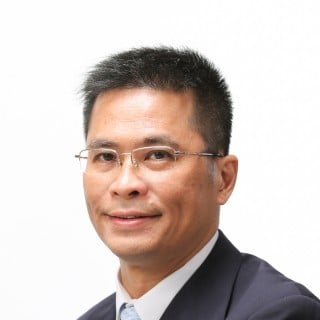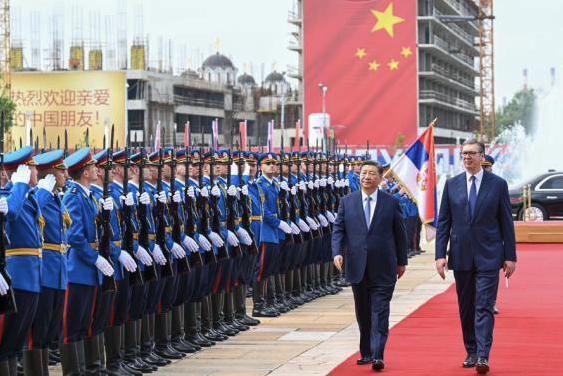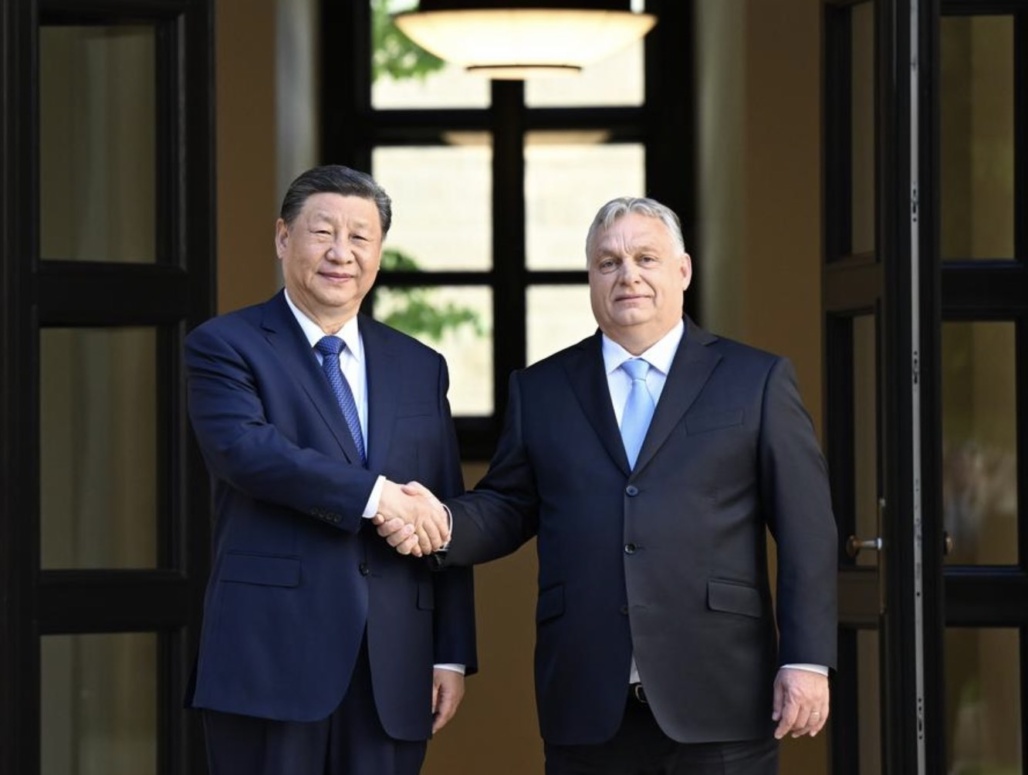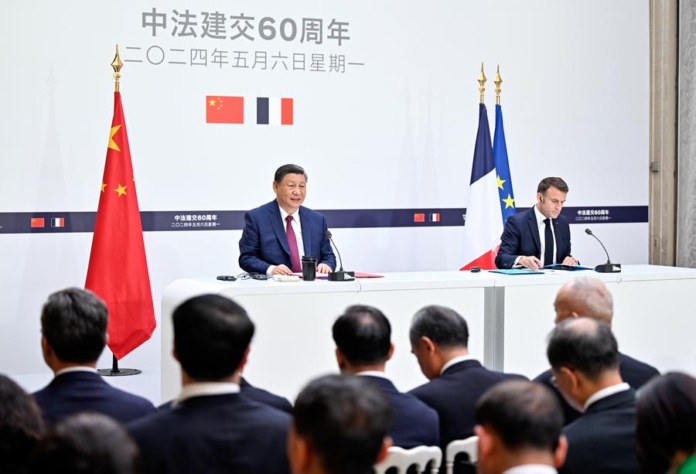The visit of the Chinese President Xi Jinping to France, Serbia and Hungary could be seen as a new move by China to implement its foreign policy of pushing the world to multipolarity rather than a unipolar world under the US dominance and hegemony. Nevertheless, the current world arguably remains unipolar as the US military spending is the top among all countries. The drive to multipolarity will likely propel the world toward uncertainties and instability unless diplomacy is extensively deployed to minimize the ideological differences and mutual misperceptions among various countries.

In September 2023, when the Chinese Foreign Minister Wang Yi met the Russian Foreign Minister Sergei Lavrov in Moscow, Wang said that China and Russia adhered to independent foreign policies and that they do not target third parties. Wang added that both countries should uphold “genuine multilateralism,” promote “multipolarity” in the world, and improve global governance in a more fair and equitable way (Global Times, September 19, 2023). He elaborated that, in the face of unilateralism, hegemonism and confrontational blocs, both China and Russia should show their roles as “major powers” with international obligations.
Obviously, Wang was referring to the US hegemony and the US-led allies in the world, emphasizing how China and Russia can and will be major powers in the multipolar world with at least three main powers balancing each other and leading the world.
On December 27 and 28, 2023, the Central Conference on Work Relating to Foreign Affairs was held in Beijing, according to an article by the Chinese Ambassador to Kenya, Zhou Pingjian (see the website of the Chinese Foreign Ministry, www.mfa.gov.cn, January 5, 2024). He said that President Xi had delivered a speech in the conference, and that the president mentioned the need for China to build a community with a shared future for the mankind in the era of turbulence and transformation. Most importantly, an equal and a multipolar world would bring about mutual progress, stability, peace, and democracy in international politics.
In January 2024, the People’s Daily published a speech delivered by the Chinese President Xi Jinping on multipolarity (Xinhua, January 19, 2024). The article referred to President Xi’s speech in 2017 in Switzerland, emphasizing the importance of being tolerant in the process of economic globalization, the significance of China’s Belt and Road Initiative that encourages socio-economic, cultural and technological exchanges among countries at all levels, and the necessity of creating a multipolar world where “countries, regardless of their size, strength, rich or poor, should be fair members of the society with equal rights to participate in decision making and to implement their obligations.”
As a country in the Global South, China advocates the need for all developing nations to share their destiny, to protect their interests and to have representative roles and voice in global affairs. What China advocates, according to President Xi, is a fair and multipolar world in which “hegemonism and authoritarian politics are opposed” while the “democratization of international relations” is propelled forward.
In February 2024, Chinese Foreign Minister Wang Yi met the French Foreign Minister Stephane Sejourne during the Munich Security Conference, and he said that both countries should join hands to build a multipolar world, apart from the need to strengthen strategic dialogue, mutual cooperation and people-to-people exchange (China Daily, February 18, 2024).
During the most recent trip of President Xi to France on May 7, he said that both China and France should avoid the resurgence of a new Cold War while strengthening cooperation at all levels, including climate change, Artificial Intelligence governance, monetary and financial reforms, the Middle East crises, green development, biodiversity and ocean governance, and agricultural development. Some twenty agreements were reached between China and France.
When President Xi met the French President Emmanuel Macron and European Commission President Ursula von der Leyen, he appealed to the need for China and Europe to contribute to peace and security in a world that is moving toward multipolarity. President Xi also refuted the argument that China had “excessive industrial capacity” – an implication that the US had produced such a “misperception” in the world and Europe.
Given France’s traditionally independent foreign policy, China clearly hopes to woo the support of France away from the US-led alliance, while conducting united front work on other more independent countries like Serbia and Hungary to make the European Union more “independent” of the influence from US and its allies.

President Xi’s trip to Serbia had important symbolic and substantial significance, diplomatically speaking. Symbolically, Serbia was a country where NATO bombed the Chinese embassy in Belgrade in 1999, but President Xi this time deliberately skipped the visit to the site of the 1999 NATO bombing. If Chinese politics attach great importance to the question of face, President Xi’s move was to give face to NATO without stimulating the psyche of the US and its allies – a gesture of goodwill and Chinese generosity even though many Western countries see China as a “threat.”
Serbia was historically symbolic of the successful resistance and guerrilla war against fascism, for its former Yugoslavia under Tito was characterized by socialism and non-alignment movement – a historical development comparable to Communist China where its guerillas succeeded in resisting the Japanese imperial forces. Ideologically speaking, Serbia and China had much in common in their historical experiences. The six-point agreement reached between China and Serbia during President Xi’s visit – free trade, Serbia’s 2027 EXPO collaboration with China, Serbian exports to China, scientific exchanges, youth exchanges, and aviation cooperation as well as air links – is a breakthrough in Sino-Serbian relations.
During President Xi’s last stop in Hungary, he met Prime Minister Viktor Orban who is reputable for his tough stance on the NATO and the European Union, although Hungary is a member of both organizations. Clearly, President Xi’s visit to Hungary was both symbolic and substantial, symbolic of the fact that Hungary adopts a relatively independent foreign policy and substantial in that both China and Hungary reach eighteen agreements.
In December 2023, Hungary announced that China’s BYD would open its first European Electronic Vehicles (EVs) production factory in the southern region – a move that marked the important inroads made by BYD in China’s automobile development. Unlike the European Union that imposes duties on EVs from China, Hungary is far more receptive to the Chinese EVs. Interestingly, top executives at BMW and Volkswagen warned against EU imposition of duties on Chinese EVs, because they said the move would be detrimental to automakers that import cars made in China (Reuters, May 8, 2024).
Overall, China’s diplomatic quest for multipolarity has a major motive. It aims at countering the US hegemony at a time when the US and its allies are not only seeing China as a real “military” and “economic” threat, but also regarding China’s ally, namely Russia, as a country that must be either “contained” or “checked.” A new Cold War mentality does persist in the world, and as such, creating a multipolar world carries the ideology of resisting hegemonism and generating a world of socialist equality characterized by “the common destiny of the mankind.”

The Chinese diplomacy of building up a multipolar world is characterized by building up bilateral and multilateral relations with various countries, including Russia and the Global South, to check the US hegemonism. The Belt and Road Initiative has become a means by which China pursues the diplomacy of multipolarity, trying to achieve a win-win situation in terms of socio-economic and technological development.
However, the current world is still dominated by the US, militarily speaking. The US military spending tops all the countries in the world, followed by China. Even though the Chinese military has been improving its hardware and increasing its spending, their capabilities remain relatively untested because the People’s Liberation Army has not fought a war since the Sino-Vietnamese war in 1979. The increases in military expenditure alone cannot easily China up to the superpower status as with the US, from a critical perspective.
Although US succession politics have been adopting democratic mechanisms and showing contentious tendencies, as shown in Donald Trump’s political emergence and recent resurgence, succession politics in China remains to be characterized by a high degree of uncertainties. Indeed, China’s economy and infrastructure development have been expanding tremendously. Still, it is debatable whether the world at present is already multipolar. If the current world remains unipolar dominated by the US militarily, then the Chinese drive toward a multipolar world is likely generating more uncertainties and challenges to the international world.
The drive toward multipolarity means, as the Chinese have officially argued, the “democratization of international relations.” Such democratization means that the US is finding it more difficult than before to control and shape the foreign policies of many countries in the world, like the current situation in which anti-US sentiment is running high among many countries in the Global South, especially in view of the US support of Israel in the Middle East crises. “Democratization” in international relations also means that more countries in the world are challenging the US and its allies, while forming coalitions among themselves, thereby propelling the world toward the path of more uncertainties, instability, and tensions.
Democratization of international relation is fostering a strong sense of the perception of the “China threat,” because the Chinese actions are seen as a menace to some countries. The recent tensions between China and the Philippines over the islands in the South China Sea is a good example showing this perception. While the Philippines has been drifting closer to the US than ever before, its nationalist stance over the sovereignty dispute is pitting Manila against Beijing dangerously. From a critical perspective, the ruling elites in the Philippines have failed to conduct a risk assessment of a possible conflict with China, for the sizable Filipino workers in the South China region, including Hong Kong and Macau, would be affected as they are now remitting their earnings back to their relatives in the Philippines. In other words, any military conflict with China over the islands in the South China Sea would likely bring about unanticipated and immense economic costs to the Philippines.
A multipolar world is also mixing up internal political development with external foreign policies in a cyclical manner. While the US is internally pluralistic and democratic but externally hegemonic, China is domestic paternalistic but externally more “democratic,” as Beijing has emphasized the “democratization” of international relations.
The contradictions between domestic and external policies between China and the US are deepening their perceptions and misperceptions, mutual distrust, political antagonism, ideological confrontations, and cross-border interactions. The US support of Taiwan is seen by China as politically unacceptable, while Washington and its allies see Taiwan as a democracy whose security, survival and stability must be defended. The recent US criticism of China’s handling of Hong Kong has also been regarded by Beijing as an interference with its domestic affairs. If domestic politics and external foreign policies are increasingly intertwined in the multipolar world, then international relations will increasingly be controversial and vulnerable to confrontations and conflicts.
In conclusion, China’s recent quest for a multipolar world can be interpreted as a sign of its socialist and egalitarian drive toward the creation of a fair world without hegemonism and unilateralism, but a world characterized by peace, security, order, prosperity, and multilateralism. Yet, the democratization of international relations has already challenged the economic, military, ideo-political interests of the US and its allies, thereby creating a backlash of reactive alliance-building and a deepening “misperception” of “the China threat.” Despite the good intention of creating a world of peace, security and stability, theoretically and practically the democratization of international relations is generating more political uncertainties, more economic and territorial disputes, and more vulnerabilities to military conflicts in the world, mainly because the intertwined nature of domestic political development and foreign policies is increasingly prominent, ideologically contentious, economically conflict-ridden and diplomatically demanding. Perhaps only diplomatic dialogue and finesse constitute an indispensable ingredient that can and will bring about calmness, rationality, stability, and peace in the world of ceaseless power struggles among various countries.
*Sonny Shiu-Hing Lo is a political scientist, veteran commentator, and author of dozens of books and academic articles on Hong Kong, Macau, and Greater China




















